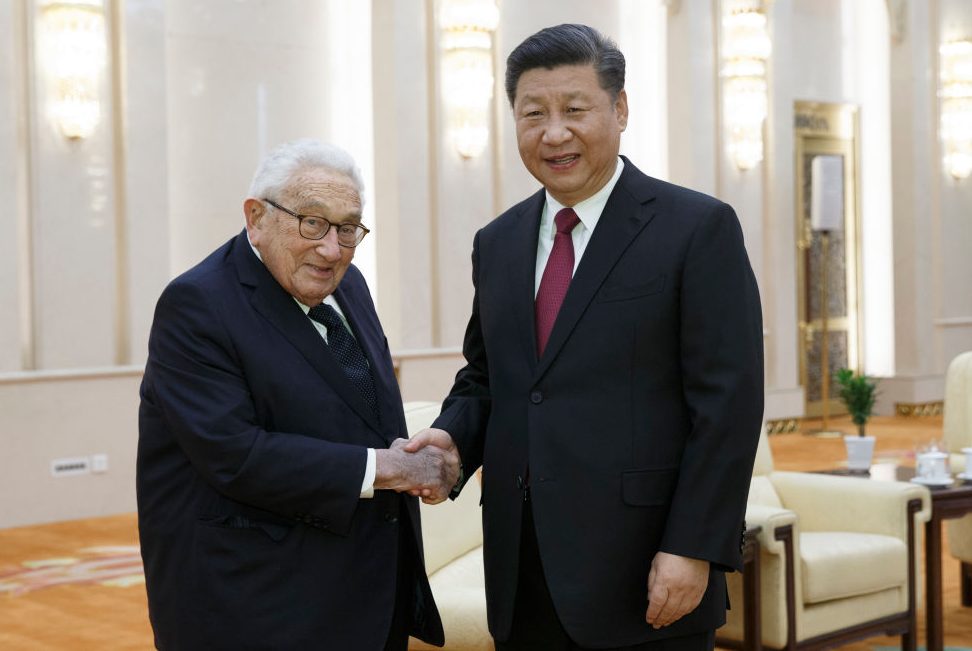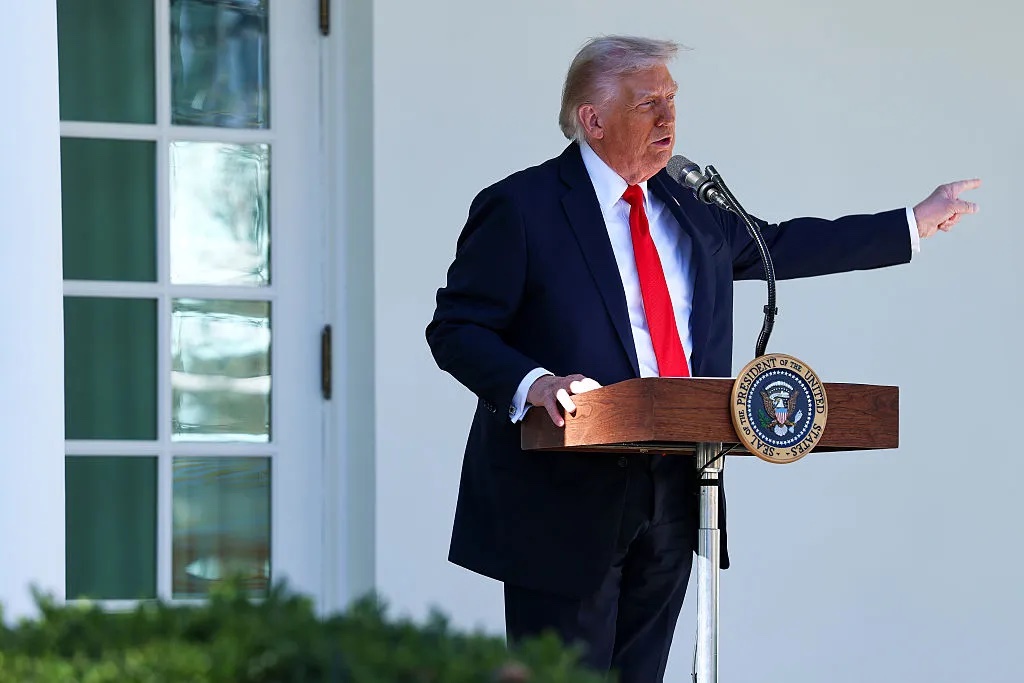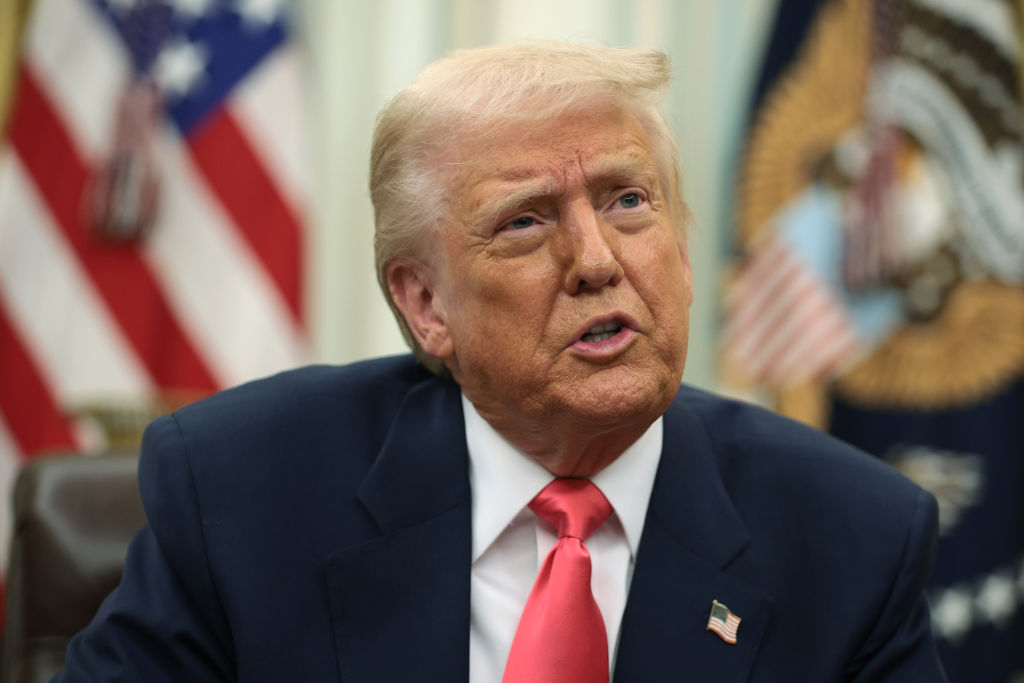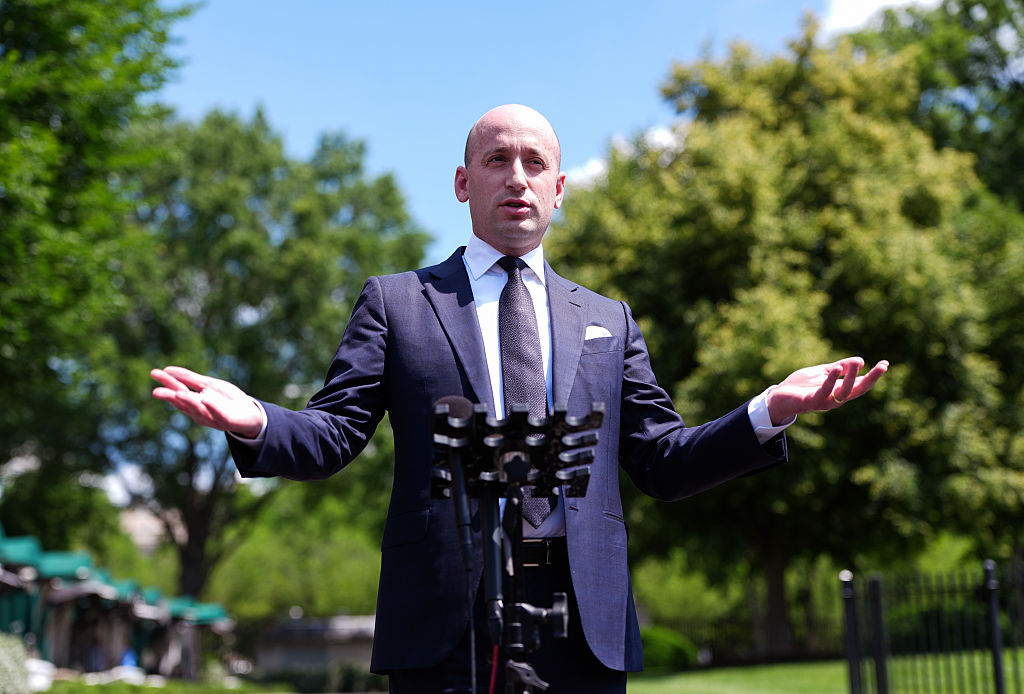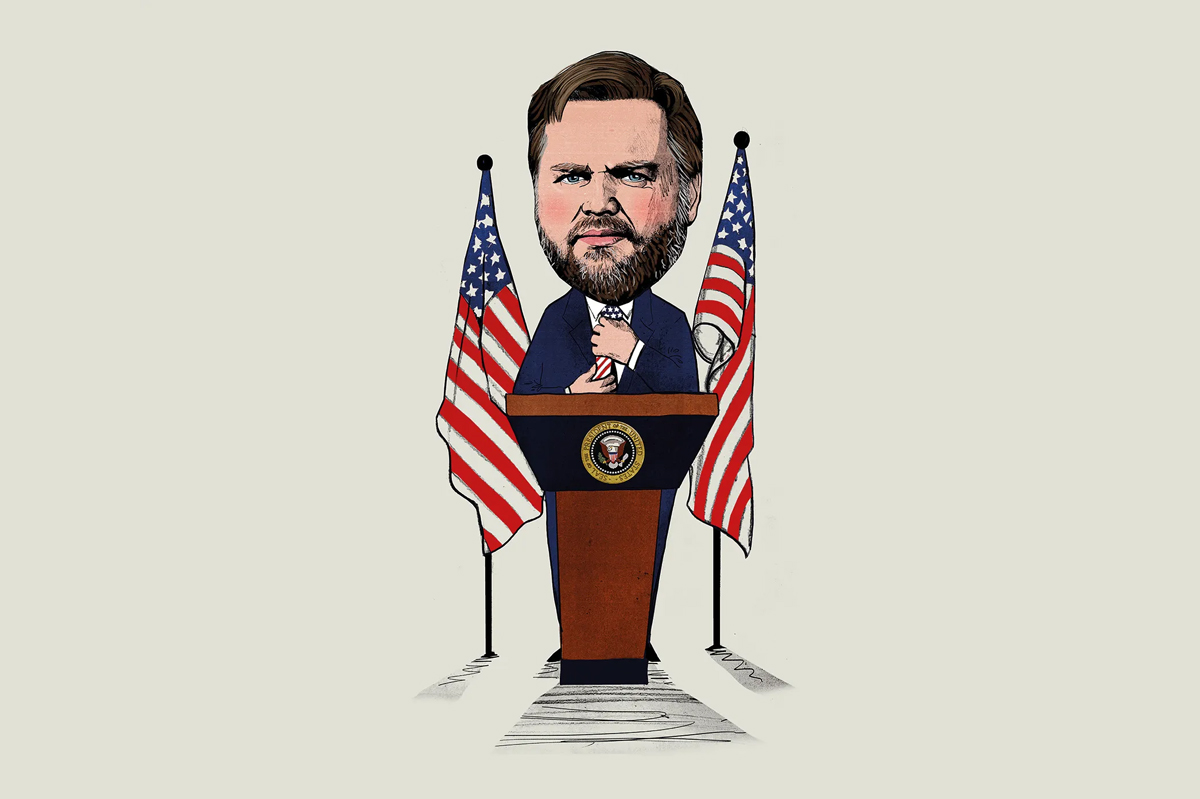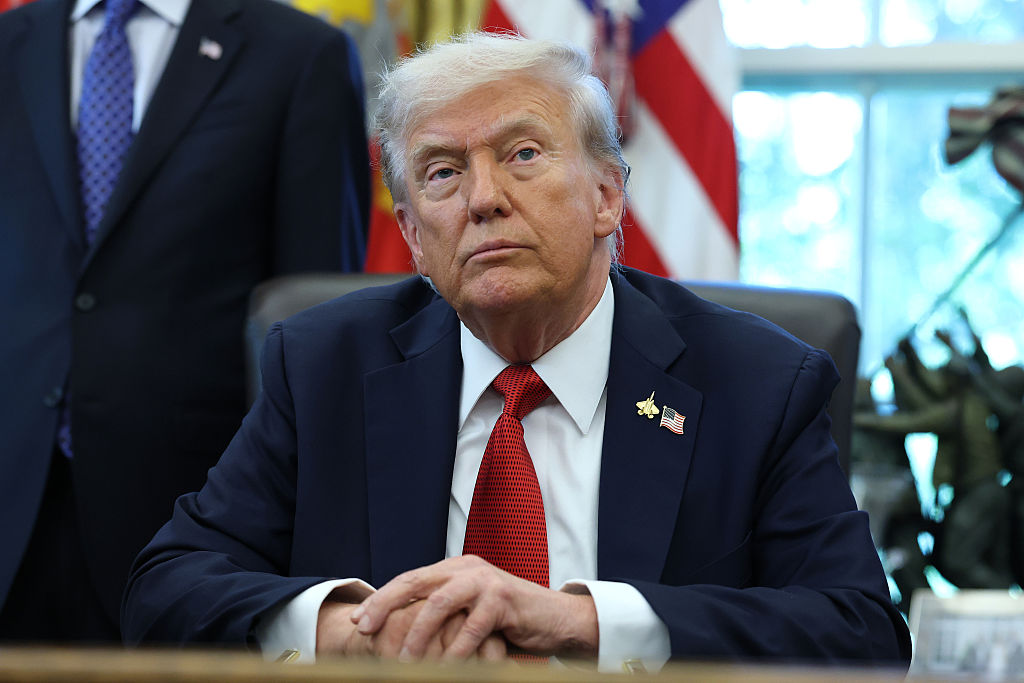The French fight it out in the streets, the British leave it to their politicians to stab each other in the back, and Americans turn to the market. This is normal service in abnormal times. The turbulence affecting Western societies isn’t going to stop soon, and the ship cannot be steadied by the hand of government on the tiller, whether by small changes to the tax code or big subsidized boondoggles. In fact, the voters suspect that government — not government in principle, but government as practiced — is the problem. And they’re right.
I’ve been in Washington, DC for a couple of days, so excuse the world-historical reflections. Two big changes are afoot in the world now, digitization and the shifting of global GDP away from the Euro-Atlantic region to Asia. Since 2016, unforeseen outcomes of democracy, Brexit and Donald Trump, have obliged national governments in the US and Britain to reverse course. By popular demand, tariffs and border controls are back, as cushions against the reversal of power in the global economy. In France, the misfiring of the electoral system produced another reversal of policy in the election of Emmanuel Macron. His retro attempt to Clintonize France’s economy went up in flames in recent weeks, as the gilets jaunes took to the streets in traditional French fashion.
Macron’s response — a moratorium on environmental taxes, and increases to France’s already lavish welfare system — shows the price of failure. If capitalism cannot assuage the voters’ fears in an era of open-ended uncertainty, then socialism will oblige. Britain’s lamentable Theresa May expressed the same counsel of despair this week when, unable to achieve a Brexit that will set the British economy on a new footing, she promises instead to legislate for ‘social justice’.
In the United States, the Democrats were heading in this direction under Obama, and look set to accelerate the trend if they get a chance in 2020. The Republicans remain committed to the free market and the global supply chain, even if their president, driving by instinct not dogma, does not. As Rex Tillerson told us last week, Trump has a similarly instinctual response to the machinery of governance.
The media tend to present Trump’s peculiar style, his bypassing of the usual policies and methods matters, as an attack on liberal democracy. It isn’t. It’s an attack on liberal democracy as currently practiced, and on operating systems that no longer function as intended, or serve the electorate who clamored for them in the first place.
This morning’s news is all about Michael Cohen and Robert Mueller, about the theatrical fencing between Trump and the Pelosi-Schumer tag team, and about Trump’s difficulties in finding a new chief of staff. Thinking of these apparently unrelated trends in moral terms might give us a warm glow of sanctimony, but that also allows us to ignore the linkage between them.
All three of these stories show the inadequacy of the current operating systems of liberal democracy: the inadequacy of campaign finance regulation in an era when a private individual can run for the presidency on his own money; the inadequacy of the bipartisan fix in an era when the economy is being reshaped by forces beyond bipartisan control; the inadequacy of traditional chains of command and government bureaucracy in the age of the tweeting presidency.
We are in, as Henry Kissinger said last July, ‘a very, very grave period’. As Kissinger also said, Trump may be ‘one of those figures in history who appears from time to time to mark the end of an era and force it to give up its pretenses’. Trump probably doesn’t know this, though he does seem to feel it in his glands of instinct, and the fact that he talks of restoration rather than progress suggests that he doesn’t have a clear idea of what the next era is going to be like. But all that is so much Hegelian footnoting.
The point here is that Trump has exposed the pretenses of 20th-century government. As any visitor to Washington notes, 20th-century government ruled through massive, labor-intensive bureaucracies. In this respect, the United States after FDR resembles earlier imperial bureaucracies, like the scribal bureaucracies of ancient Sumeria and Egypt, the Confucian civil service of China, and the Indian Civil Service under the British Empire.
The ‘elites’, ancient or modern, eastern or western, cannot function without the scribal bureaucracy. This explains why Trump confuses and outrages the latter-day Confucians of Washington. They don’t know how it will happen, but they sense that he is a harbinger of the end of their governing system, and they equate the end of their governing system with the end of the system itself. So do the media too, who sit at the gates of the bureaucracy like philosophers in the agora at Athens, only without the clarity.
The scribes of the bureaucracy and the media are wrong. The democratic system isn’t dying in darkness, but is being brought to life via the computer screen. While we don’t know what the outcome will be, we do know that the survival of the American system depends on the refurbishment of the bureaucracy.
We see this in the struggle over regulating Silicon Valley, which is also a negotiation over a merger. We hear this in the arguments of Avik Roy, who points out that the only way the government can afford to pay for universal healthcare is to digitize as much of it as possible, including routine check-ups. We also hear this in the protests of the established scribal class and its clients, who protest that the end of their time and methods are the end times of democracy. And, as that world-historical figure Kissinger reflects, we see it in Donald Trump, even if we don’t like what we see in our reflection.
Dominic Green is Life & Arts Editor of Spectator USA.



